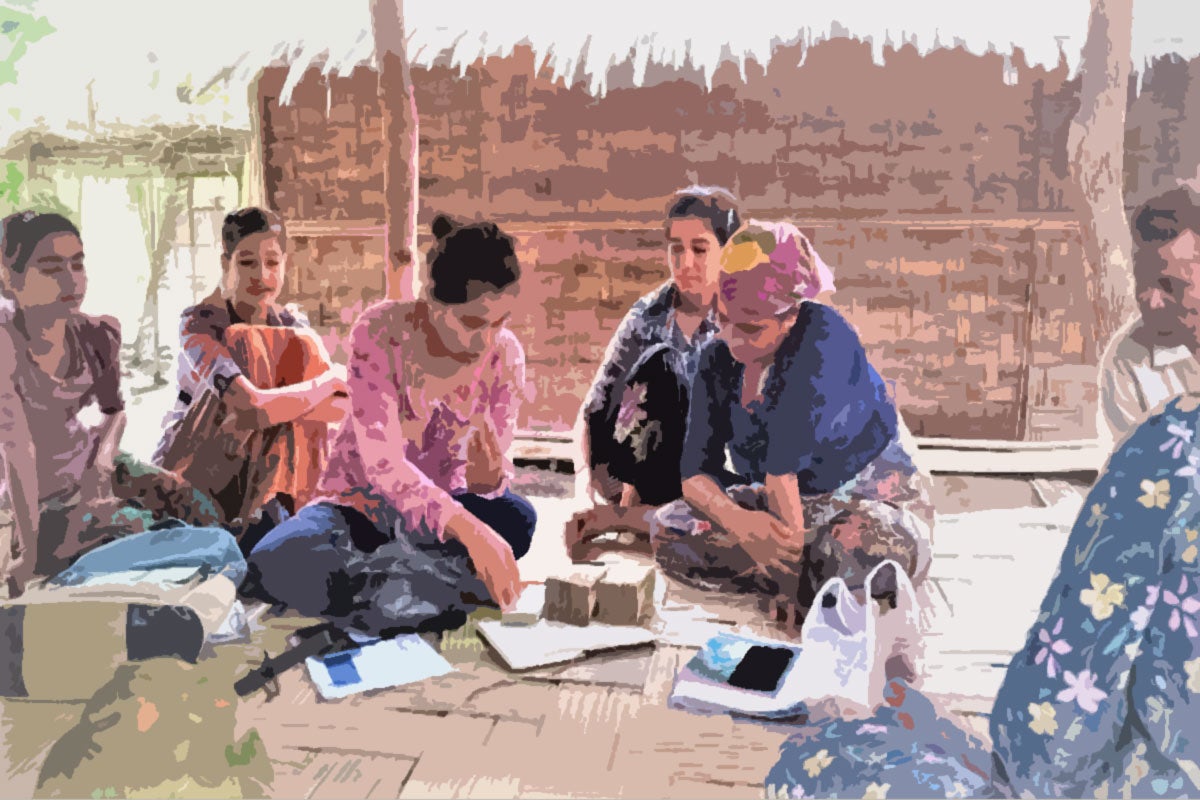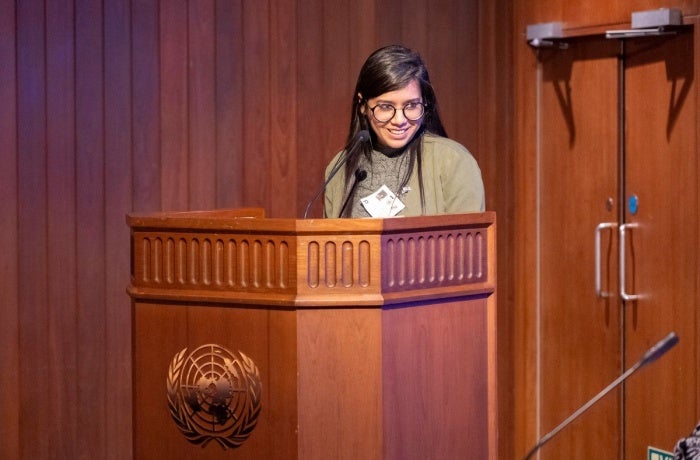Women’s organizations remain at the front line of the crisis response in Myanmar
In Rakhine State, Myanmar, the productive fields are left unharvested. Normally teeming with agricultural workers—the majority of whom are women and girls from the local villages—the fertile landscape has become another deadly battlefield.
Landmines, planted after the military coup in 2021, are causing soaring numbers of civilian casualties. Women and girls who dare to venture into rural fields alone, also face threats of sexual violence. A UN Women survey of 2,200 women in Myanmar found that half of them were afraid to leave their immediate neighbourhoods.

In Rakhine and Kachin States, the risks of violence are associated with shrinking mobility of women and girls. But staying at home has its own challenges. Rates of gender-based violence (GBV) are growing in households, as tensions rise over severe hunger and poverty. “There are no opportunities and no income, so the women and girls are beaten,” says Win*, a representative of a local women’s organization in Myanmar.
The lifeline: Only local partners can reach women and girls impacted by GBV
At a time when women and girls desperately need humanitarian support, external borders have been closed to international humanitarian workers. Instead, it is local women-led and women’s rights organizations and other local actors that have stepped up to shoulder the delivery of critical services to crisis-affected communities, often at great personal risk.
Since 2021, UN Women has supported 91 local women’s organizations in Myanmar through training on leadership, representation, advocacy skills, and awareness raising on humanitarian decision-making mechanisms and processes, contributing to increased access to tools and resources available in humanitarian planning and response processes and mechanisms.
The work has been carried out in partnership with UNFPA, through a grant from the Central Emergency Relief Fund (CERF). More than 30 per cent of that funding has directly supported local women-led and women’s rights organizations. Without them, says Rowena Dacsig, programme specialist for UN Women Myanmar, women and girls in Myanmar would be missing their last remaining lifeline.
Beyond the military checkpoints of Kachin and Rakhine States, local women-led and women’s rights organizations have delivered critical services to women and girls who have experienced or are at risk of GBV, such as psychosocial counselling and humanitarian items like dignity kits, which include basic sanitary and hygiene supplies.
Local organizations have also been supported by UN Women to provide livelihood services, including financial skills development training and agricultural activities to 4,094 GBV survivors and women at risk, many of whom are now responsible for household income and earnings as husbands and sons are recruited by armed groups.
“Only those organizations which have local partners can carry on with their work”, says Dacsig. “Otherwise, the services to survivors and those at risk of GBV, including in internally displaced persons camps, would have ceased completely. Without these local partners, we’d be totally blind to the needs of women and girls in Myanmar because little to no information is coming out of these communities.”
In return, she adds, UN Women and UNFPA have also supported local women’s organizations through trainings on topics such as protection against sexual abuse and exploitation, upholding accountability within affected populations, and conducting risk assessments and gender analysis to inform delivery of critical services, for example, in relation to protection and livelihoods.
* Name has been changed to protect the privacy of the individual.









